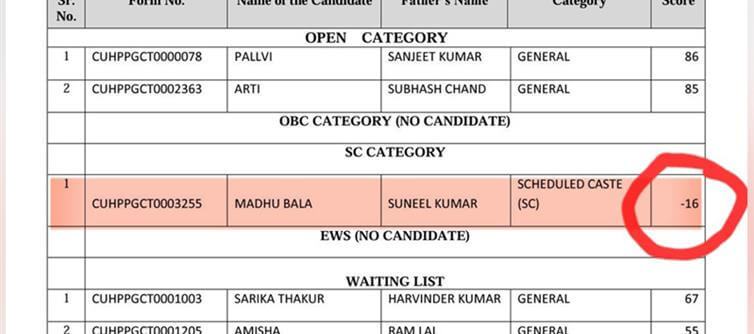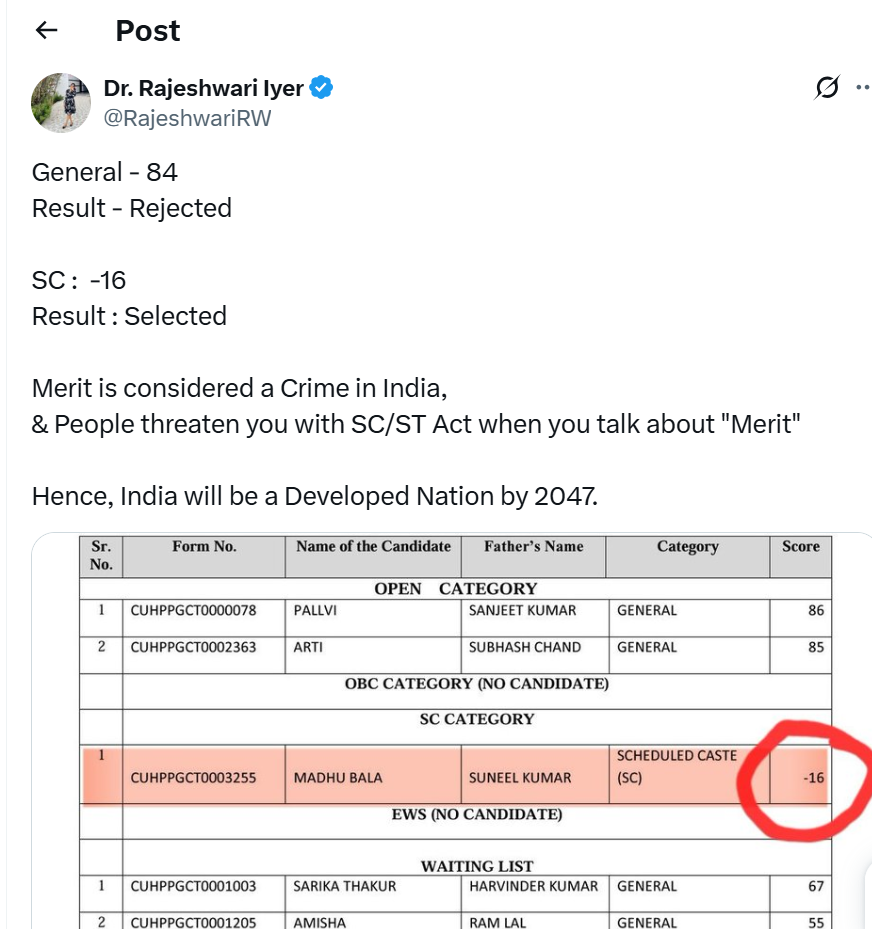
The reservation system in india was introduced as a social justice tool to uplift historically marginalized communities—an important and necessary step when first implemented. However, critics argue that over the decades, it has often failed to adapt to changing socio-economic realities. Instead of being revisited and restructured based on present-day data or financial background, it continues to rely heavily on caste categories, sometimes excluding truly disadvantaged individuals from non-reserved groups. What worsens the situation is the fear many feel about even discussing this openly due to the sensitive nature of the topic and potential legal or social repercussions, especially concerning the SC/ST (Prevention of Atrocities) Act, which some claim is misused to silence dissent.
 If india aspires to become a developed nation by 2047, it must have the courage to confront difficult questions—reservation being one of them. True progress lies not in abandoning affirmative action, but in refining it. A more dynamic, evidence-based approach to social equity—one that incorporates economic status, regional disparity, and educational access—can ensure that support reaches those who need it most, regardless of caste. Until then, frustrations over perceived injustice and merit suppression will continue to grow, and so will the skepticism about India’s ability to create a truly equal and aspirational society.
If india aspires to become a developed nation by 2047, it must have the courage to confront difficult questions—reservation being one of them. True progress lies not in abandoning affirmative action, but in refining it. A more dynamic, evidence-based approach to social equity—one that incorporates economic status, regional disparity, and educational access—can ensure that support reaches those who need it most, regardless of caste. Until then, frustrations over perceived injustice and merit suppression will continue to grow, and so will the skepticism about India’s ability to create a truly equal and aspirational society.




 click and follow Indiaherald WhatsApp channel
click and follow Indiaherald WhatsApp channel